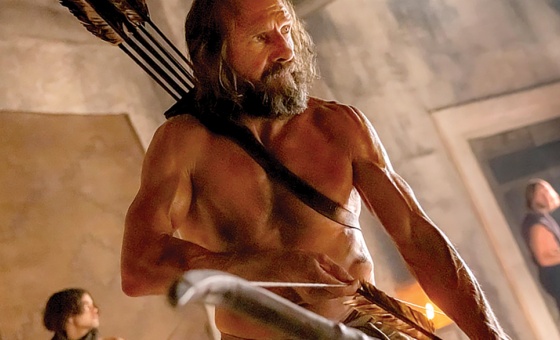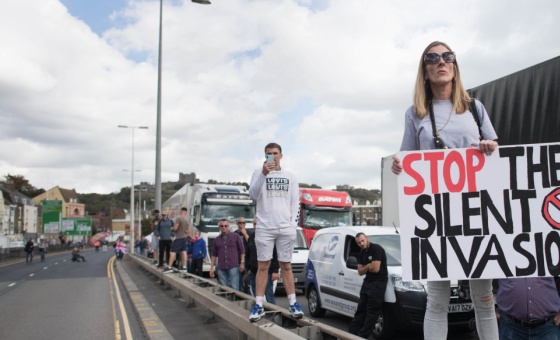This is the last article you can read this month
You can read more article this month
You can read more articles this month
Sorry your limit is up for this month
Reset on:
Please help support the Morning Star by subscribing here
FOLLOWING the death of Elizabeth Windsor, no-one in the Establishment media is taking any chances with the public mood.
Public affection for the late Queen is not in doubt and yet BBC journalists are whipping up paroxysms of grief that wouldn’t be out of place in North Korea.
The BBC’s Johnny Diamond and Nicholas Witchell have wrung out every possible emotive line about the Queen’s selfless devotion to service and the nation’s unending sorrow.
Yet an objective view of her reign must separate her personal qualities from the role the monarchy has played in the service of Britain’s imperial interests, machinations and crimes over the last 70 years.
The examples are too numerous to list, but in every major crisis since the Queen was crowned, amid a period of troubled decolonisation, the Queen played her part.
Britain’s close ties to the Shah of Iran prior to and following a British and US-backed coup in 1953 is a perfect illustration of the way the monarchy functioned to legitimise neocolonial policies.
Shah Pahlavi ruled with a brutal secret police and was put into power because his elected prime minister had nationalised Iran’s oil industry — a highly profitable part of Britain’s imperial possessions in the Middle East.
Once safely installed, the oil profits flowed once more, and the Queen received the Shah as an official guest in 1959 and made a state visit to Iran as the Shah’s guest in 1961.
Britain attempted to continue its imperial influence across the Middle East through the support for the royal regimes that it put in place and supported in Egypt, Iraq, Jordan, Libya and the Gulf emirates.
In the post-war period of anti-colonial revolt, several of these monarchs were overthrown, to the great chagrin of Britain.
In the case of Libya, King Idris, formerly the leader of the Sanussi tribe and Emir of Cyrenaica, was awarded the Grand Cross of the British Empire for his support in the defeat of German and Italian forces in north Africa during World War II.
The Queen’s cousin Earl Mountbatten (who oversaw the precipitous and disastrous partition of India in 1947) was a close friend of Idris and used to visit him in Libya and stay at his royal palace.
In return, Idris supported Britain and France during the attack on Egypt in 1956 and provided the US with a major airbase near Tripoli, home to 4,600 US personnel.
All of this was lost in Muammar Gadaffi’s coup of 1969.
The British policy of installing and supporting monarchies across the Middle East sits oddly with its proclaimed support for democracy, when no democratic or constitutional reform has taken place in most of these regimes.
The British royal family plays an essential role in maintaining an autocratic model of diplomacy and personal relations with Saudi Arabia, the UAE and Oman.
These regimes support Western economic interests across the Middle East, while also pouring billions into the British economy, pumping up invisible earnings and buying up luxury property and Premier League football clubs.
The Queen’s love of horses was shared with her good friend Sheikh Mohammed bin Rashid al-Maktoum, the Emir of Dubai, whose notorious kidnapping of two of his daughters, one carried out in the middle of the English country in 2000, did nothing to dent the Queen’s relationship with the tyrant.
Despite a recent court case confirming the kidnappings, he appears untroubled by any threat of arrest for what are serious crimes.
It should never be forgotten that the monarch is the commander-in-chief of the British armed forces, to which all soldiers swear an oath of loyalty before deployment to Afghanistan, Iraq and elsewhere, in wars that leave devastation and hundreds of thousands dead.
As the Queen said in her broadcast to the armed forces in 2009 as Britain’s iniquitous role in the Iraq war came to an end: “Wherever you are deployed in the world, you should be assured that I and the whole nation are deeply thankful for the part you play in helping to maintain peace around the globe.”
Her grandson Prince Harry is only the latest royal who served during a war in which British forces have been accused of systematic war crimes, with the deaths of hundreds of civilians in night raids, executed in a macabre game of body counts that was covered up at the highest levels of the army, according to a recent BBC investigation.
The new king, Charles III, has visited the Gulf region many times, enabling the continued sale of British weapons to the Saudi regime in its bloody war in Yemen that has seen tens of thousands killed in air strikes.
Covering up the crimes of empire has been a staple of Elizabeth’s reign. From eight years after her coronation until well into the 1970s, the British government engaged in Operation Legacy, destroying countless records of the British colonial era.
As an Irish commentator wrote on Twitter: “Now is the time to discuss this kind of detail because [the Queen’s] death is being used to push a sanitised history of her reign.”










